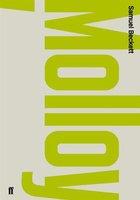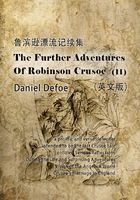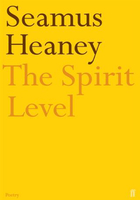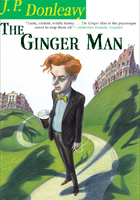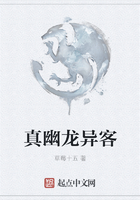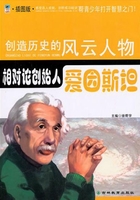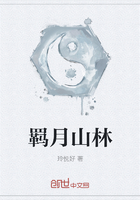There are more ways than one of telling a story. I could perhaps plunge as Homer does-whom I have read in translation-in medias res with my arrival at the city of Quebec in May 1776, when the American War had been already in progress for a year; and tell the story backward from that point until overtaking it again. But I consider it both more workman-like and more soldier-like a method to do as follows: first, to relate some particulars of my early life and peace-time service with the British Army in Ireland; next, before coming to my own experiences in the war, to venture upon a general account of its origins and commencement. Here I beg leave to point out a grave historical lack: namely, an impartial Detail of the more minute but no less important occurrences of the war which, as secret springs of a clock, actuated the visible pendulum and turned round publicly the hands of time. The only attempt at such a Detail of which I have knowledge is a work published in America, and written by a Member of Congress, but which I find to be exceedingly partial.
I first heard the name of America from my father, an industrious Dublin tradesman who dealt chiefly in seamen's necessaries, on the occasion of the news reaching our city of the British capture of Quebec in Canada from the French under M. de Montcalm. This was in November 1759, the year of victories, when I was not quite four years old. Great cheering and shouting were heard in our humble street, which lay contiguous to the Arran Bridge on the River Liffey, because it was a Protestant street and here was another victory to be celebrated over the Papists of our vicinity. My big brother Tom came bouncing in with the news, blackthorn in fist, huzza-ing and twirling in the air his frieze cap. But my father, upon learning that the gallant and affable General Sir James Wolfe, who had been Quartermaster-General of the Forces in Ireland but a year previously, had fallen in the hour of victory, sternly rebuked Tom's enthusiasm. He made him sit down quietly upon a stool and hearken to a geographical lesson upon the subject of North America which (my father said) was wholly ours now, for ever. This was, as I say, the first time that ever I heard tell of America, and the name was thereby endued for me with solemn associations of glory and grief. My father, I must observe, was a man of much reading which strong native powers of intellect had led him to digest and methodize; but he was by no means pious and gave me no regular religious education, though he taught me at an early age to read, cipher, and write a fair hand.
For many weeks after, a favourite play in our back garden was the 'Capture of Quebec,' in which my brothers played the part of the British forlorn-hope that swarmed up the Heights of Abraham (a withered apple-tree) to the Upper City of Quebec (the roof of a wood-shed), where two of my younger sisters and myself did duty for the French Army. Tom was the eldest, and I the youngest of our family of eleven, of whom four were boys. In the following year Tom sacrificed his life in defence of his country, dying of a wound received on board a British frigate during a fight in the English Channel. My father was gravely afflicted by the news, which took the sweet taste of perpetual victory from his mouth and left only bitterness. Hitherto he had used to take me every Sunday afternoon along the North Wall and describe to me, in the most interesting and familiar manner, the latest naval engagement of which news had reached him; pausing now and then to illustrate the man?uvres of the ships with marks scratched in the mud. He used the point of his stick, a curious twisted piece of ivory, the spear of a sword-fish. But there was now no more of that, for when one day I asked him: 'Father: tell me a battle!' he shook his head and tears came into his eyes.
He replied: 'Ah, Gerry, dear child, I see your little breast has been fired with the accounts I have given you. But I only related these things to form your judgment: I would not have you become a fighting man, no, not on any account. I have lost one fine boy already in fighting for his country. Let us have no more talk of battles for a while.'
A year or two later, my two remaining brothers (as well as my favourite sister) died of the confluent smallpox, so that I was left the only son of my parents. I was nearly carried off myself, and being thus preserved unexpectedly was for some time so cosseted and indulged by my mother that I became very wilful; and when my father began again to discipline me for my faults I resented it greatly. I openly defied him, and allowed him no alternative but a sterner discipline yet. My mother took my part, but secretly, because she stood somewhat in dread of my father, who was of powerful body and of temper difficult to govern.
I constantly visited the quays on the banks of the Liffey and soon acquired the art of swarming up the masts of the vessels moored thereabouts. One day at the age of six I came near to destruction by imitating the acts of some grown lads whom I had seen that same morning strip off their clothes and jump from the steps of the old dock, in the place where the new customhouse now stands. But whereas the boys had leaped into the river at low tide, when the stream did not rise above their middles, I inadvertently chose a time when the water was ten feet deep. I plunged to the bottom like a stone and, my legs sinking in thick mud up to my knees, I was caught there fast. I would infallibly have drowned had not one of my father's customers, who was passing with a messmate, happened to see my plunge and happened also to be an expert swimmer. Observing, after a time, that I did not rise again to the surface, he immediately leaped in and took me up, almost dead. I was quite unconscious; but this excellent fellow laid me on the ground in the sun and stretched himself beside me. He blew with his mouth into mine, closing my nostrils with one hand, as with the other he expelled the air by pressing my chest closely. Then calling to his mate to continue the treatment, he also gave me a tobacco clyster, puffing up smoke of tobacco into my bowels with the broken stem of his pipe; and next rubbed my belly with his neckerchief. The last remedy of this series was a pinch of snuff in my nostrils. I sneezed, vomited, and so painfully recovered my senses.
This adventure, far from deterring me from the water, only made me eager to learn how to swim; and after some time I became such a proficient that, from off the bowsprits and round-tops of ships, I frequently leaped head-foremost into the river. I also delighted in the summer-time to float about in the sea at the river's mouth, lying quite stiff and straight, and suffering myself to sink till the water entered my ears; thus committing myself to the discretion of the tides. I could remain for several hours in the water in this manner, and would continue often until I grew drowsy and took little naps as I floated. I recommend swimming to the rising generation as a most healthy accomplishment, and immeasurably more useful than many which are at present taught at a very great expense.
My mind still ran upon naval battles and the seafaring life in general, and since my father no longer indulged me in my fancy I would prevail on seamen who came to the shop to tell me of their own experiences in the wars. My father was vexed at this curiosity of mine. He therefore took me by the hand one holiday morning and said: 'Come, Roger, my froward son, let us to-day walk farther than our usual custom. Let us visit the Four Jolly Rogers.'
I could not conceive what he meant by this play on my name, and hoped to meet with-I hardly know what, perhaps four big playmates. He took me along the South Wall and near the pigeon-house, in the direction of the lighthouse, talking to me of the hardships and dangers of the seafaring life, and enlarging on my own intractable disposition. At last he pointed to some large objects hanging above my head and said solemnly: 'There swing the Four Jolly Rogers, Roger, my froward son, and be careful that you don't one day make a fifth. For it is directly to those rusty chains that your present inclinations are leading you.'
The four hanged men, whose mouldering and tattered bodies were swaying in the breeze above me, on gibbets (as terrible examples to the people of Dublin in general and myself in particular) were Peter M'Kinley, boatswain; George Gidley, cook; Richard St. Quintan and Andrew Zikerman, mariners.
'These ruffians,' my father told me, 'conspired together and murdered the master, mate, and cabin-boy of a merchant ship, the Earl of Sandwich (out of Oratova, laden with wine, Spanish dollars, gold dust, and jewels), and also a Captain Giles, his wife, his young daughter, and a serving-boy. They then altered the course of the ship, which was bound for London, and landed some leagues from Waterford, where they loaded the ship's boat with treasure and left the Earl of Sandwich with her ballast-port open to sink, as she soon did, together with two cabin-boys whom they barbarously left on board. The four men subsequently came to Dublin and lived for a time in great luxury and excess.
'However, the ship was in some way buoyed up from the ocean-bed and a few days later came ashore near Waterford. That there was found no damage to her hull or masts caused much speculation; and upon M'Kinley disposing of about £300 worth of dollars to a Dublin goldsmith, the plot was suspected. Presently all four criminals were laid by the heels: who severally confessed to the commission of this horrid crime.'
He added many vivid circumstances to the narrative, with which I will not trouble my readers, though they still remain indelibly impressed upon my mind.
This was the first sight that I had ever had of corpses, and it caused such alarm and disgust in me, their flesh being rotted from the bones so that their anatomies showed plainly under their ragged clothing, that I said not a word but began to whimper and begged to be taken home at once. I could not sleep that night, and the day following I was found tossing in a violent fever of the brain. When this left me, I had no desire left for a seafaring life, since in the height of my delirium I imagined myself to be a cabin-boy sucked down with the ship; and this was a recurrent dream with me for many years following.
At the age of eleven I was taken under the charge of a youth of fifteen named Howard to stay for six weeks in a village of West Meath: at the house of his uncle Mr. William Howard, a merchant of Jervis Street, and a close friend of my father's. I had never before left my father's roof or lived in the country and the experience delighted me, though I was astounded at the pitiable condition in which these country people lived. Their only fare was potatoes and buttermilk, and their small, smoky cabins seemed to be pigsties in which humans were housed, rather than human habitations with occasional accommodation for pigs and poultry. On the first day that I was in this village I presented a little piece of sugar-candy to a ragged peasant boy of my own age: an act for which old Mr. Howard reproved me, saying that the child had never tasted such a delicacy in his life. To give him a touch of it was cruel, as creating a new appetite and so making him dissatisfied with his lot. Mr. Howard was a very religious gentleman, but, I remember, stoutly opposed a project sponsored by the rector of the nearest parish, to set up Sunday school for the poor children: advancing the same reason, that it would lead to trouble as educating them above their station, and unsettling their minds. Perhaps he was right, for they seemed a happy, singing people in spite of all; and notwithstanding the drab hue of their faces, which could be ascribed to continual curing by peat-smoke, robust enough in frame. 'I envy them,' sighed Mr. Howard, 'with all my heart I envy them. Not an old man among them has the gout, an affection that is slowly killing me.'
I was here accepted as the hanger-on and errand-boy of Mr. Howard's son, who was a year older than his cousin, and had just obtained a commission in the Fourteenth Regiment, then stationed at Boston in America. They appeared very grand gentlemen to me, and I soon learned the newest oaths-'Od's triggers,' 'As God shall judge me,' 'Prick my vitals,' and the like-together with the fashionable London manner of speaking: to their great amusement. Mr. Howard's son fancied himself as a swordsman, and so did the nephew, and together they taught me the rudiments of small-sword fencing. I became proud of this elegant accomplishment, which I took up seriously on my return to Dublin, though it was not altogether consonant with my station in society. I even entertained the idea of becoming a professional duellist-of the sort employed at that period by some great persons to fight their battles for them. The two Howard cousins amused themselves at the same time by putting me on a spirited horse, in order to see me tossed off; but somehow I managed to keep my seat, and before long, by perseverance, became a tolerable horseman and could even leap low walls and ditches.
Mr. Howard's son was pleased with my usefulness to him and flattered by my devotion, which came very near to downright worship. At my instance, he wrote to my father, asking whether he might take me with him to America. My father was ready to comply with this unusual request, for I had been a great trouble to him at home; but it proved in the event that no situation in The Fourteenth could be procured for so young a boy as I then was. I was obliged to remain at home and the disappointment distressed me. I resolved at all events to depart for America as speedily as possible, and there attach myself to my hero. What ensued is a familiar sort of story, and I will therefore spare particulars of it: how an adventurous child goes to the captain of a vessel sailing for the Indies or America and asks to be engaged. The captain either laughs and tells the boy to run home, or else (which is more common) he engages him and then betrays him to his father, asking a sum of money for his release. Mine was the commoner case. My father paid the money, and took tribute from me with a stout stick.
At that period the administration of justice was greatly relaxed in the city of Dublin. It was almost impossible for persons to walk through some parts of the city (particularly on Sunday evenings) without encountering the most violent and sometimes dangerous assaults. Lower Abbey and Marlborough Streets on the north side of the city, and the Long Lane near Kevin Street on the south, were the places of general rendezvous for 'Club Law,' as it was vulgarly called. Here numbers of daring, desperate fellows used to assemble and form themselves in battle array according to their religious persuasions: then to batter one another with well-managed blackthorn sticks, showing neither mercy nor remorse.
In the case of death, which was frequent, the murderer was seldom discovered. On only one occasion that I remember was such a man apprehended by the watch and tried for his life by the civil power. He did not deny that he had struck the fatal blow or profess any regret, pleading ancient usage and that it was done in sport. Evidence was then advanced that the victim's skull was particularly thin, and the jury, upon retiring, instantly brought in a verdict of 'innocent,' the foreman announcing very grandly on their behalf that 'a man with so un-Hibernian a cranial formation had no right to stroll down Lower Abbey Street at five o'clock of a Sunday evening.'
I took no part in these encounters. As a small-swordsman I considered the blackthorn club beneath me, but would often condescendingly watch the battle from a distance, sword in hand lest I should become involved in a charge of the Papists. My only regret was that in my walk of life I did not encounter sufficient adversaries armed with my own weapon to keep my hand in practice; affairs of honour which called for recourse to the sword being a prerogative of the higher orders of society.
After the age of seventeen, when I had been for two years employed as clerk in the counting-house of a respectable tallow-chandler and soap-boiler, I grew weary of my lot. It was a continual regret to me that my father's means and interest were insufficient to secure me a commission in the Army, for which I considered myself by nature fitted. I read several treatises on strategy and military engineering, but this practice seemed to no purpose and I desisted. I thought then of persuading my father to let me change my employment and learn surgery in the hospitals, so that I might become an Army surgeon. But he would not grant me even this request. My disgust with tallow-chandling increased and I grasped at whatever distractions of a novel sort were offered to me by the city. The cockpit outside the barracks was my favourite place of call and I would wager there as much as half a guinea on a main, though my wages did not warrant my staking so much as a sixpence.
One memorable day, the 10th of August 1773, I was challenged to lay against that oddity, a hen-cock-that is to say, a cock with plumage resembling a hen's-which was to meet a famous shift-wing red, owned by a drummer of the garrison, that had won six good fights in a row. I offered to lay a shilling, which was all that I had of my own money in my pocket, but this was considered unhandsome by my challenger, an evil, black-browed, sallow fellow with a little grey cock tucked under his arm. So I dared to clap down on the board a whole guinea with which my father had that afternoon entrusted me-I was to take it to a tailor in discharge of a debt. The shift-wing, after a long quailing, was prevailed upon to set to the hen-cock, but with such evident alarm and dismay at what seemed to him a fowl of the opposite sex masquerading in spurs, that the hen-cock made short work of him: first tearing his throat and then, volleying over, striking him through the brain with the first heel-blow.
I had lately been forced to pledge my sword and a laced hat owing to similar mischances of play, and had no other resources left for concealing my peculation. I am sure that had I played the prodigal son and, going to my father, fallen on my knees with: 'Father, I have sinned against Heaven and before thee and am no more worthy to be called thy son,' he would have rebuked but forgiven me once again. But pride would not permit this Christian course, nor a recollection of his good-humoured scorn at my parade of cock-fighting lore. Instead of returning home I thought to myself: 'I am a man now and have no more fear of a father's curse than I have use for a father's blessing. To the devil with my father, the guinea, the tailor, the block-browed rogue, and that theif of a hen-cock! I still have a shilling to stake on the last fight.'
This fight was between the little grey cock and another of the same breed, but rather dark-winged. It ended in confusion, the company clamouring that the 'black fellow with the jaw on him' had played his cock foul. They fell on him in a body, but somehow he extricated himself unharmed from the hurly-burly and darted down the street, the little grey cock under his arm. I kept my shilling and the sport ended. Then I said to myself, 'Damn the whole lot of 'em! I still have a shilling for rye whisky: a man can get drunk as a tinker's wife for less than half that sum.'
I soon found myself in the public-house opposite the lower barrack gate, calling for rye whisky and puffing out my chest. Sergeant Jenkins, who kept the house, was a recruiting sergeant. He noticed that the top of my head overpassed the chalk line on the lintel that marked five foot six and a half inches, which was the height below which, at that time, no soldier could be accepted for enlistment. He therefore flattered me and gave me another drink, this time at the expense of the house. Then followed a close inquiry after my state of health: had I ever been troubled with fits, was I ruptured, had I the sight of both eyes? I satisfied him with these particulars without even considering his reasons for asking them, and he began to stroke my shoulders and croon over me: 'Aye, a fine, tall, brave dandy young fellow: the proper cut, the exact proper fit!' It so closely recalled an old farmer exulting over a pig to be carted off to market, that I laughed in his face. However, he joined heartily in the laugh, and soon he had me nobly drunk. Within half an hour he had trotted me before a Justice of the Peace and sworn me in; and lo, I was a recruit of His Majesty King George's Ninth Regiment of Foot, and committed to a martial career after all.
But Sergeant Jenkins was himself a trifle drunk and did not consider that I was enlisted in good form until, after the event, he had made me his customary recruiting speech in the following well-worn phrases:
'To all aspiring heroes bold-in which I include you, Mr. Lamb-who have spirits above flattery and trade, and inclinations to become gentlemen by bearing arms in His Majesty's Ninth Regiment of Foot, commanded by the magnanimous General Lord Ligonier, let him repair to the drum's head (Towrow-dow!) where each gentleman volunteer shall be kindly used and honourably entertained and enter into present pay and good quarters. Besides which, gentlemen-meaning yourself, Mr. Lamb-for your further and better encouragement you shall receive one golden guinea advance, and a crown besides to drink His Majesty King George's health. And when you come to join your regiment you shall all have new hats, caps, arms, clothes, and accoutrements and everything that is necessary and fitting to complete a gentleman soldier. God Save their Majesties, and success to their Arms!'
'Huzza, huzza,' I replied fervently, gripping his hand.
When I came to my senses the next morning I was sick and sorry for what I had done; but another drink or two of whisky soon restored me, and I was able to go home to my father, accompanied by Sergeant Jenkins, and civilly informed him that I had joined the Service. I repaid him therewith the guinea out of my enlistment money and promised to settle another small debt from the sale of my present wardrobe so soon as a set of regimental clothes should be issued to me. He took the news pretty well, grasped my hand, and wished me good luck in my new life since I had failed so signally in the old. It is curious that his chief regret was that I had joined the Army in preference to the Navy: forgetting, I suppose, his former objections to my entering on a seafaring life. The Navy, for which my father had a predilection, having once served in a King's ship as boatswain, despised soldiers heartily. It was a preferential saying of seamen: 'A messmate before a shipmate, a shipmate before a stranger, a stranger before a dog, a dog before a soldier.'
The Army, it may be remarked, returned the odious compliment. 'Sailor' was a term of peculiar affront in the barrack-room; and in an officious hand-book issued about this time it was ordered that: 'You must enlist no strollers, vagabonds, tinkers, chimney-sweepers-or sailors.' And in another similar work it was remarked: 'Sailors and colliers seldom make good soldiers, being accustomed to a more debauched and drunken way of life than what a private soldier's pay can possibly admit of.' The severest and most disgraceful punishment that could be inflicted upon a soldier, beyond any quantity of lashes, or the Wooden Horse, or even the Scavenger's Daughter was Removal to the Navy. I think it a great pity that such reciprocal abuses were and still are exchanged between the two Services: they breed jealousies and ill feeling that has often been fatal to our arms in a combined expedition on land and water. My father, I believe, regarded my choosing the Army in preference to the Navy as a slight both upon himself and upon my dead brother's memory; though, as I say, he took the news pretty well.
My mother was disconsolate and could not say a word of good-bye, but only wept.

